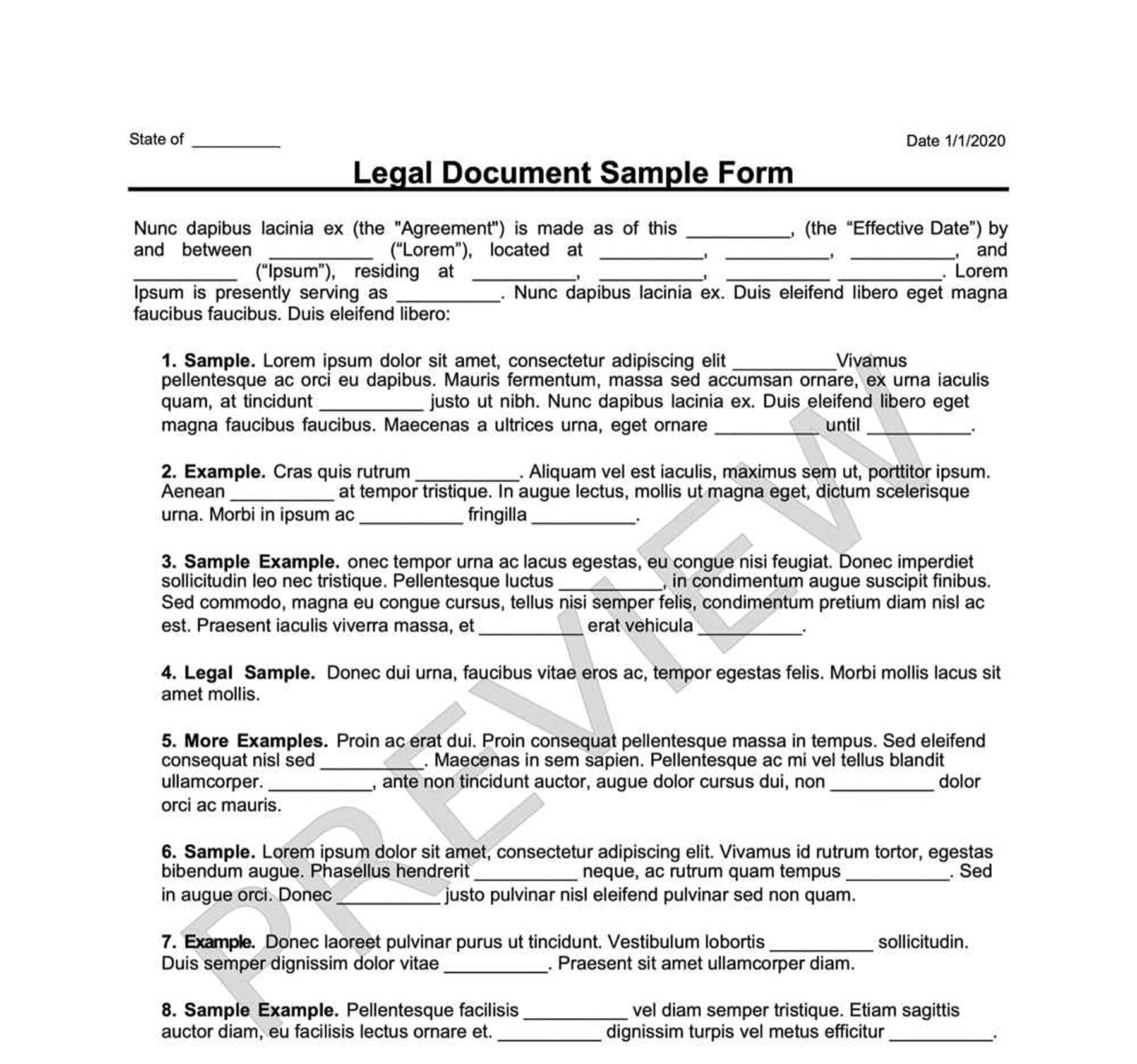Website Privacy Policy
A Website Privacy Policy is a legally binding document you can display on your website to inform users about your data collection policies.

How it Works
Build your selected document.
Answer a few simple questions with step-by-step instructions.
Print & download forms instantly. Sign & make it legal.
What Is a Website Privacy Policy?
Everyone has a right to privacy, whether in the comfort of their homes or online. However, privacy breaches are pretty common in the digital age, along with many users unwillingly sharing their personal information online.
Regulating and protecting one’s online privacy is one of the most significant issues facing individuals and organizations. For any website that collects data, the Website Privacy Policy is a mandatory document that must be made available.
What Is a Website Privacy Policy?
Most websites, and even apps, collect a wide range of information from users through tracking technology. A Website Privacy Policy is a document you can upload to your site to inform users of various data collection and sharing policies.
Other Names for Website Privacy Policy
Depending on your state, you may also know a Website Privacy Policy as a:
- Privacy Policy
- Privacy Notice
Who Needs a Website Privacy Policy?
Due to international privacy laws, any company, individual, or organization that collects data online must inform its users. In addition, the Website Privacy Policy must also disclose what data is collected, why it’s collected, and how it's secured, used, and shared.
The legal requirements of the Website Privacy Policy depend on the user’s location instead of the size, revenue, or type of business. Therefore, as long as you have website users, visitors, and account holders from various jurisdictions, chances are you need a comprehensive Website Privacy Policy.
For example, your policy must comply with General Data Protection Regulation (GDPR) regulations for European users. It should also adhere to the California Online Privacy Protection Act (CalOPPA) rules and, under specific circumstances, the California Consumer Privacy Act (CCPA) for residents of California.
Various international jurisdictions have clear regulations regarding online data collection. If you know where most of your users come from, compiling your policy will be easier using Swyft Forms.
Why Use Swyft Forms for Your Website Privacy Policy
Customized for you, by you
Create your own documents by answering our easy-to-understand questionnaires to get exactly what you need out of your Website Privacy Policy.
Specific to Your Jurisdiction
Laws vary by location. Each document on Swyft Forms is customized for your state.
How to Create a Website Privacy Policy With Swyft Forms
If you’re considering drafting a Website Privacy Policy, there’s lots of information to go through regarding international guidelines and regulations. Without ample knowledge in this space, you risk creating an incomplete privacy policy page that can leave your website and company vulnerable.
Let Swyft Forms help with our extensive library of attorney-vetted legal forms. The process is fast and easy. All you need to do is fill out our easy-to-understand questionnaire. Once complete, simply download your form as a PDF or Word document from your secure online account.
What Information Will I Need to Create My Website Privacy Policy?
To create your document, please provide:
- The Effective Date: The date the document goes into effect.
- Personal Information: Your legal name and contact information if running a personal website.
- Company Information: Your company’s full name, address, and contact information, if applicable.
- Collection Process: Explain the process used to collect data from users and whether you use third-party services.
- Usage: Include all uses for users’ data, from simplifying payment processing to shipping, advertising, selling to agencies, and everything in between.
- Security: Inform users of the safeguards you have in place to protect their personal data from unauthorized intrusions.
- Storage: Include information regarding data storage and whether third parties are involved.
- Cookies: Disclose whether you use cookies and how you use them.
- Term: You can choose to have a power of attorney expire on a specific date. Otherwise, the designation will continue until you revoke it.
Website Privacy Policy Terms
- Cookies: Small files generated by web servers that browsers can use to identify specific users quickly.
- Personal Information: Personal information may include but isn’t limited to names, addresses, dates of birth, payment details, geographical location, and social security numbers.
Website Privacy Policy Signing Requirements
There are no specific legal signing requirements when creating a Website Privacy Policy, such as having a witness or notary public present. Adhering to disclosure regulations is the most critical part of making this document.
What to Do With Your Website Privacy Policy
Once you have your comprehensive Website Privacy Policy, it’s best to upload it to your website. Create a separate page for it and connect it with an appropriate button on your welcome page, the home page, or any other section of your site.
You could also prompt users to go through the policy and agree to it before you allow them to read your website, create an account, or buy something.
The Website Privacy Policy can also have links within the Terms and Conditions page and Cookie Policy page to make it more visible to users.
Other Names for Website Privacy Policy
- Website Privacy Policy Form
- Website Privacy Policy Document
- Website Privacy Policy Agreement
- Website Privacy Policy Contract
- Website Privacy Policy Template
- Website Privacy Policy Checklist
Who Needs a Website Privacy Policy?
Why Use Swyft Forms for Your Website Privacy Policy
Customized for you, by you
Specific to Your Jurisdiction
Why choose Swyft Forms?
Create professional documents for thousands of purposes.
Make unlimited documents and revisions.
Our documents are vetted by lawyers and are applicable to all 50 states.
